WOW – What an amazing day it has been. After being greeted by a wonderful welcoming dance, we had the pleasure of meeting James. James is genuinely one of the most passionate teachers I have ever met, who has embraced the Junior Landcare project wholeheartedly into the Kaboyo School in Masaka.
It was a great experience having James take us around the school, and explain to us the sustainable features of the program including:
- planting of quick growing (4-6 years) wood which will be used for firewood for cooking in the future
- planting of tall heavy growth trees like avocado and mango that will provide shade to the coffee and other vegetables planted
- harvesting of water for both drinking and enough to water all of the plants
- planing of trees that self seed. eg. Mango and avocado seeds are produced which can then be planted and create seedlings for the next year
- Piggery breading program, piglets are sold each year in the markets. The bonus about pigs is that they eat all the food scraps; AND…..
- catching all of the pig poop for use as chemicals to kill other bugs that threaten their vegetables crops (after a filtration process)
- planting of a vegetable garden which is used to feed the children and teachers everyday
- applying the large scale greenhouse on a much smaller scale to teach the kids how to make one at home
- Kids are taught songs to help them remember and understand the importance of looking after the land, and growing and caring for their farms
- turning their seedling farm into a commercial operation which will be run by the parents and community
The schools that are selected for the Landcare project are ones that have land, but not necessarily the skills and resources to know how to make the best use of it, the attendance in school is low, and drop out rate is high for kids over 12 years old (close to 50%). The key impacts the Junior Landcare Project has has on the Kaboyo school in just two years include:
- Every child and teacher gets fed every day (which may be their only meal of the day)
- School attendance has increased (motivated by the food)
- every child has been given seedlings to take home to grow in their own gardens.
- parents and the wider community have also become engaged in the project and are learning too
The key motivation for parents to send their kids to school is to be fed, and now this school is not only providing them food and water, but providing them with life skills of both survival and hopefully enough to enable them to one day have their own commercial farm.
Having been part of the feasibility study into the Junior Landcare Project 3 years ago, it was such an incredibly proud moment for me to see this project so successful and impacting not only on kids in the school but the community as well.
Danyelle Robson (aka Robbo/Dany/D)
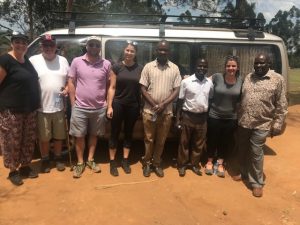
Mathias, enthusiastic James and the Head Teacher
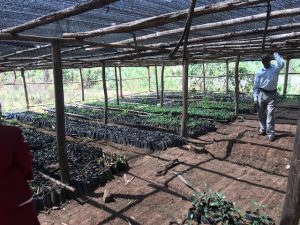
Commercial Seedling nursery
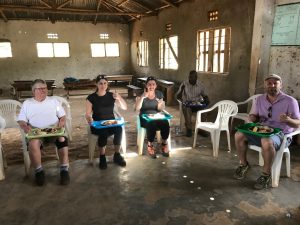
Our final community lunch
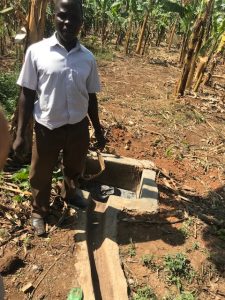
James explaining how Pig Poo is captured, filtered and reused
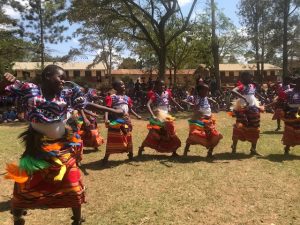
Another amazing welcoming performance by the school kids.
